In an effort to shake off tired category tropes, Australian indie ABEL’s ‘This Body Says’ brand platform for Just Eat Takeaway gives voice to warring body parts deciding what to order.
Staring at a food delivery app, paralysed by choice, has…
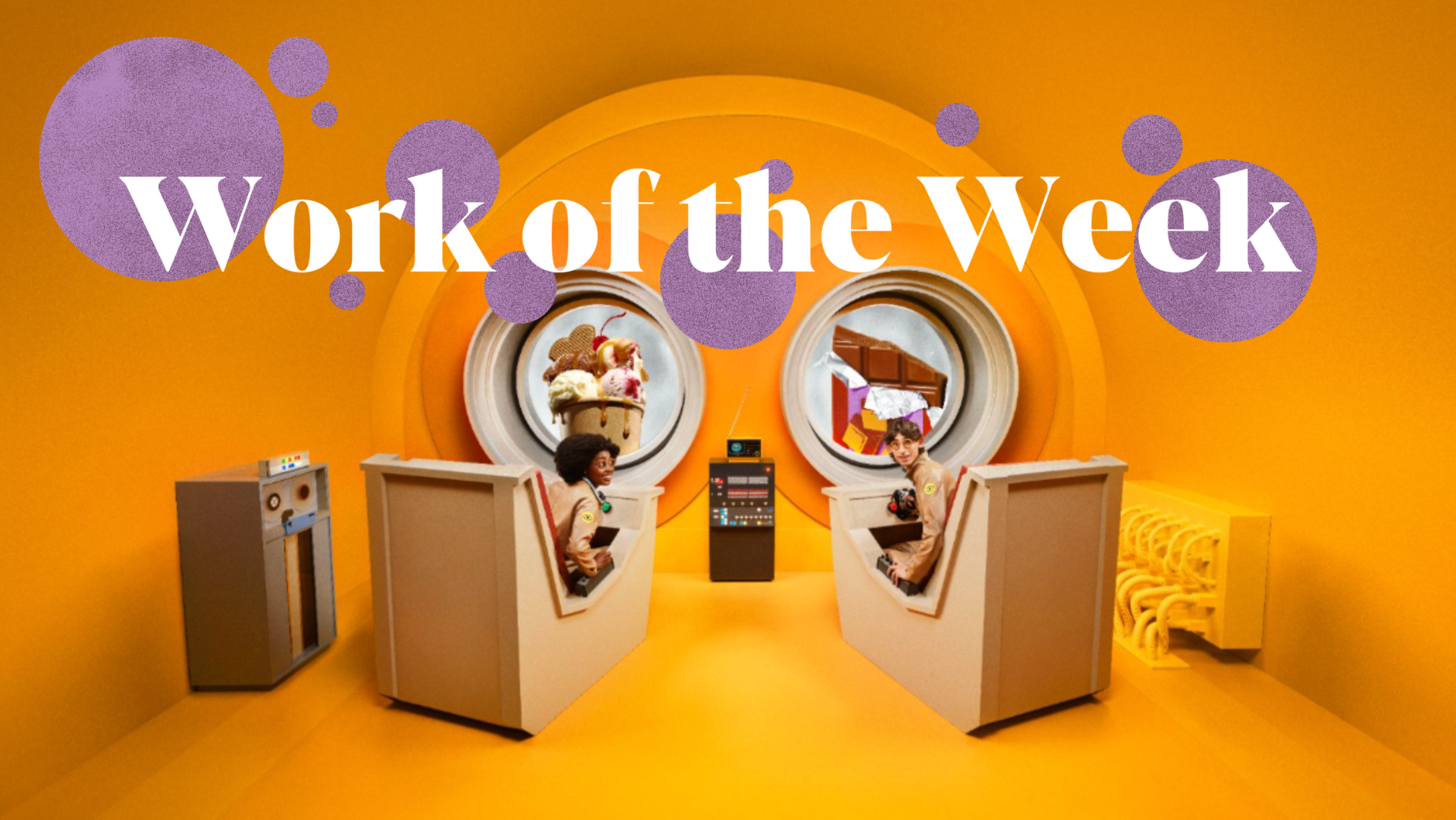
In an effort to shake off tired category tropes, Australian indie ABEL’s ‘This Body Says’ brand platform for Just Eat Takeaway gives voice to warring body parts deciding what to order.
Staring at a food delivery app, paralysed by choice, has…
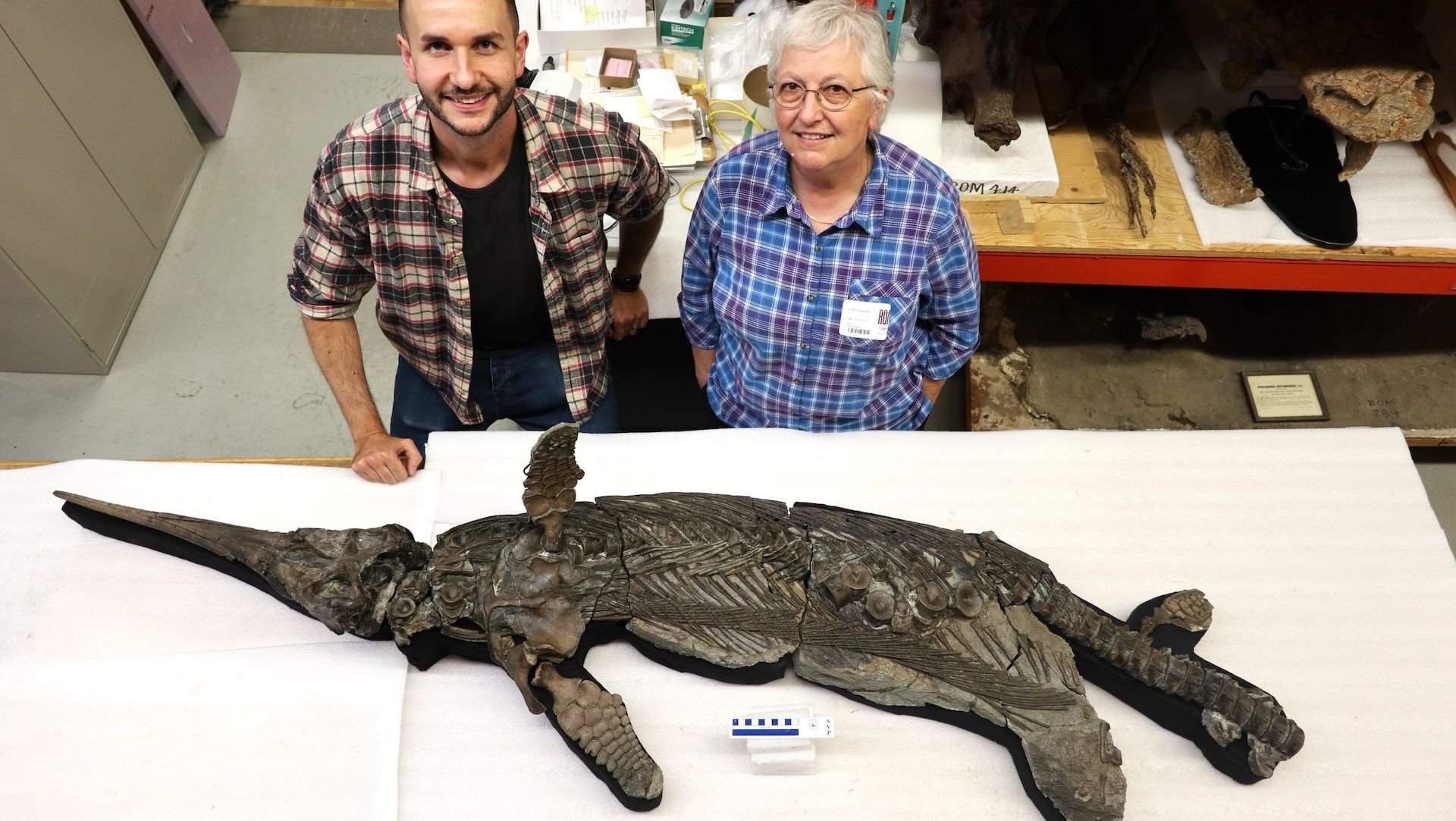
A nearly complete fossil skeleton found on the U.K.’s Jurassic Coast represents a newly identified species of ancient marine reptile that lived alongside dinosaurs.
The ichthyosaur, dubbed Xiphodracon goldencapsis, was likely around 10 feet (3…

Female athletes have reaction times 80 milliseconds faster and make fewer mistakes on the day they ovulate, according to research.
Researchers at University College London (UCL) studied how different stages of the menstrual cycle and levels of…
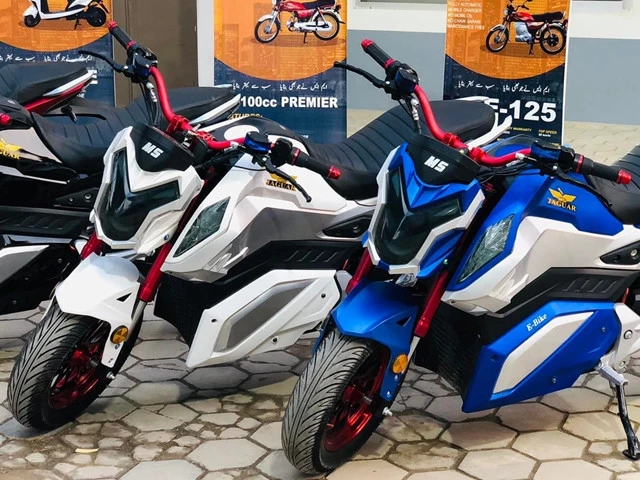
The government has allocated Rs9 billion under the Pakistan Accelerated Vehicle Electrification (PAVE) scheme for the current fiscal year, aiming to subsidize the purchase of approximately 116,000 electric bikes and 3,000 electric rickshaws and loaders.
Responding to a query raised by Anusha Rehman during Question Hour in Senate, State Minister for Railways, Finance and Revenue Bilal Azhar Kayani stated that the initiative falls under the recently launched New Energy Vehicle (NEV) Policy 202530, which is aimed at accelerating the adoption of electric vehicles and enhancing local EV manufacturing capabilities.

Variety Awards Circuit section is the home for all awards news and related content throughout the year, featuring the following: the official predictions for the upcoming Oscars, Emmys, Grammys and Tony Awards…
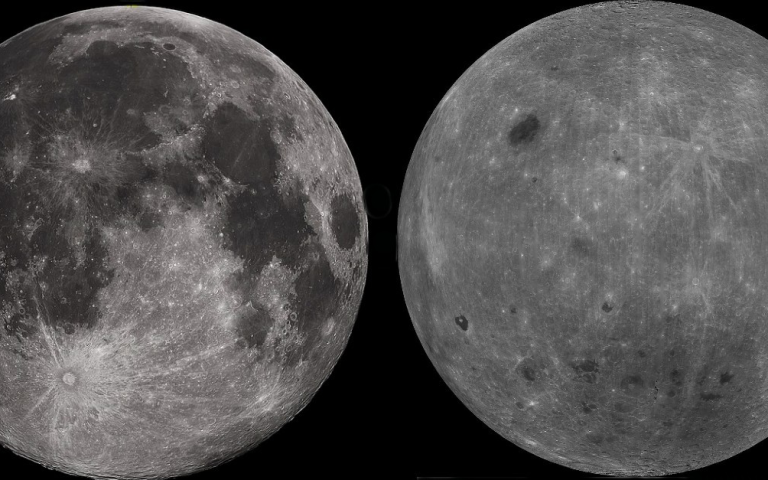
When the Apollo astronauts returned from the Moon, they brought with them samples of lunar soil (regolith) and rock. The analysis of these samples forever changed our perceptions of how the Earth-Moon system formed and evolved….

Tigris Data Inc., the operator of an object storage service optimized for artificial intelligence workloads, has raised $25 million in early-stage funding.
The company said in its announcement of the Series A round today that Spark Capital…


Imogen FoulkesBern, Switzerland
 AFP via Getty Images
AFP via Getty ImagesPresident Trump’s tariffs have caused shock worldwide, with governments scrambling to find a deal to placate him. Some have managed: the UK got in first, with a sweet deal of just 10%, the European Union crept in behind with 15%.
Still more than they were paying before Mr Trump’s “liberation day”, but less than they had feared.
Spare a thought then for Switzerland, which has been hit with punitive tariffs of 39%, and has so far been unable to persuade the US president to relent. Switzerland is not in the EU, so it can’t benefit from the deal struck by Brussels.
But Switzerland is regularly ranked as the world’s most competitive and innovative economy. It is also one of the biggest investors in the US, creating, Swiss business leaders say, 400,000 jobs. That’s why they find the US strategy not only outrageous, but inexplicable.
“Thirty nine percent tariffs: I was just shocked,” says Jan Atteslander, director of international relations for the Swiss business federation Economiesuisse.
“This is unjustified, you can’t explain why they are so high.”
 Getty Images
Getty ImagesSince the tariffs (the highest in Europe and the fourth-highest worldwide) were announced on 1 August, the Swiss government has been desperately trying to renegotiate with Washington, to no avail. The US president, it seems, has moved on to other matters.
Around 17% of all Swiss exports go to the US, a market Switzerland cannot afford to lose overnight. Now that the tariffs have come into effect, the once muscular Swiss economy is suffering. Economic growth is shrinking, and job losses in key industries appear inevitable.
Switzerland’s most lucrative exports to the US are pharmaceuticals. Ironically, they are not affected by the 39% tariffs, but might be subject to the 100% tariff on imported medicines that Trump recently threatened. That would be another huge blow.
Another big Swiss exporter to the US is Switzerland’s world-leading medical technology industry.
“It’s precision mechanics, it has its roots in the watchmaking industry,” explains Adrian Hunn, who is managing director of Swiss Medtech, the trade body representing the industry.
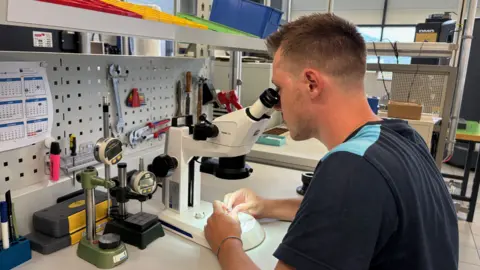 MPS
MPSThe town of Biel, the historic home of Swiss watchmaking, and now the site of medical technology companies, demonstrates why there may be no winners, but only losers, from Washington’s tariff policy.
The company MPS (short for micro precision systems), produces medical instruments from aortic valve replacements to the tiniest of surgical drills, used in hip or knee replacements. Just the kind of things a wealthy country with an ageing, and increasingly overweight population – like the US – needs.
So precise is the production process, that even the machines used to produce the devices are made and specially calibrated locally.
“It’s a very integrated way of working,” explains MPS’s CEO Gilles Robert.
“Measuring equipment, milling tools, cutting liquids. That’s why we call it an ecosystem that we have here in Switzerland.”
Mr Robert’s proudest product is the engine for the world’s only medically-registered artificial heart.
Just 120 of them have been transplanted worldwide. “It’s a pump that will pulse in both sides, to create beating in both chambers, and allow people currently waiting for a transplant, people with terminal heart deficiencies, to keep on living.”
Technology like this is very different from the car industry, where, often, the brakes are made in one country, the windscreen wipers or door handles in another, and everything is assembled in a third.
That’s why Mr Robert is not convinced that Trump’s stated strategy of moving production to the US could work.
“It would be extremely challenging if not impossible to separate the components from the actual product assembly,” he says. “And I think those types of skills would be extremely hard to find in the US.”
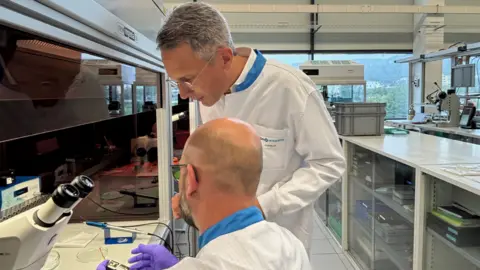 MPS
MPSTrump has said the countries hit with tariffs will “eat them”. So can MPS absorb the 39%?
“They had the best price before the new tariffs came into effect,” says Mr Robert.
“We don’t have the leeway to give a discount to our customers, because the margins are already as low as they can be.”
Instead, says Adrian Hunn of SwissMedTech, “Medical devices will get more expensive for US patients.”
And he adds, probably for US taxpayers as well. “Costs for hospitals and healthcare systems in the US in many cases are funded by public reimbursement programmes, and this means taxpayers bear the burden.”
Perhaps even more worrying for patients, since some high precision medical devices are made only in Switzerland, is the possibility that Swiss companies will stop exporting to the US altogether.
“These are companies that have very good products,” says Jan Atteslander of Economiesuisse. “And they have told us, we just stopped delivering, sorry guys.”
Mr Atteslander and Mr Hunn agree with the Swiss government’s strategy of not retaliating to the US tariffs. Switzerland’s David, the thinking goes, cannot realistically take on America’s Goliath.
But the Swiss are actively chasing other markets. A trade deal with India – “the fastest growing economy on the planet, 1.4 billion potential consumers,” Mr Atteslander points out – came into force on 1 October.
An agreement with South American trade block Mercosur has also just been concluded, Switzerland’s longstanding trade deal with China is being upgraded, and free trade with the EU, the market for 50% of all Swiss export, remains intact.
So although the US tariffs are already damaging the Swiss economy, and some still cling to hope that Trump may change his mind, there is also a quiet confidence that Switzerland will, if it has to, weather this storm.
“To be a successful export nation, you have to have resilience in your DNA,” says Mr Atteslander.
The more long-term damage may be to the traditionally good business relations between the two countries. In Switzerland, there is a real feeling of hurt. The US wasn’t just an important market: the Swiss loved doing business there.
Many thought they had found entrepreneurial soulmates, more oriented to the free market than their more regulated partners in the EU. Now, both Adrian Hunn of SwissMedTech and Gilles Robert of MPS have abandoned that notion – for now at least.
“I lived six years in the US, so I was very close,” says Mr Hunn.
“I have a lot of friends there. So, this, it didn’t change my view of America, but it did change my view, you know, of how the current administration in the US is acting globally, and treating allies.”
“I studied a year in the US,” says Mr Robert.
“It had an impact on me, on my way of looking at the world. How you can take risks, be an entrepreneur, and be positive about the future.”
But, he adds hopefully: “Even though I’m sad about this situation, we will overcome, we’ll find solutions, and I’m sure in the end reason will prevail.”
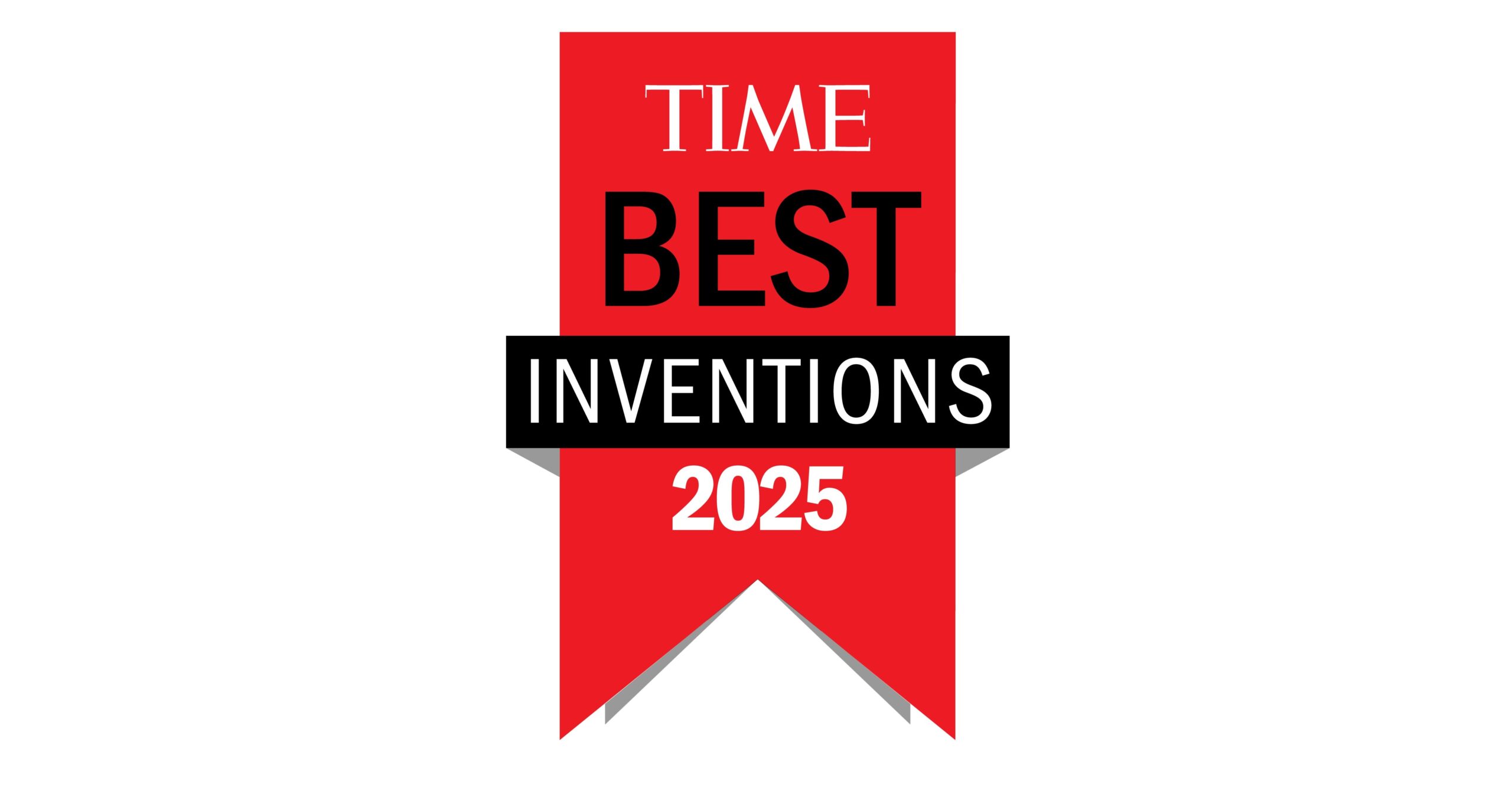
Dual Recognition Underscores Therabody’s Leadership in Driving the Future of Wellness with Science-Backed, Clinically Proven Innovations
LOS ANGELES, Oct. 9, 2025 /PRNewswire/ — Therabody, the global leader in wellness…